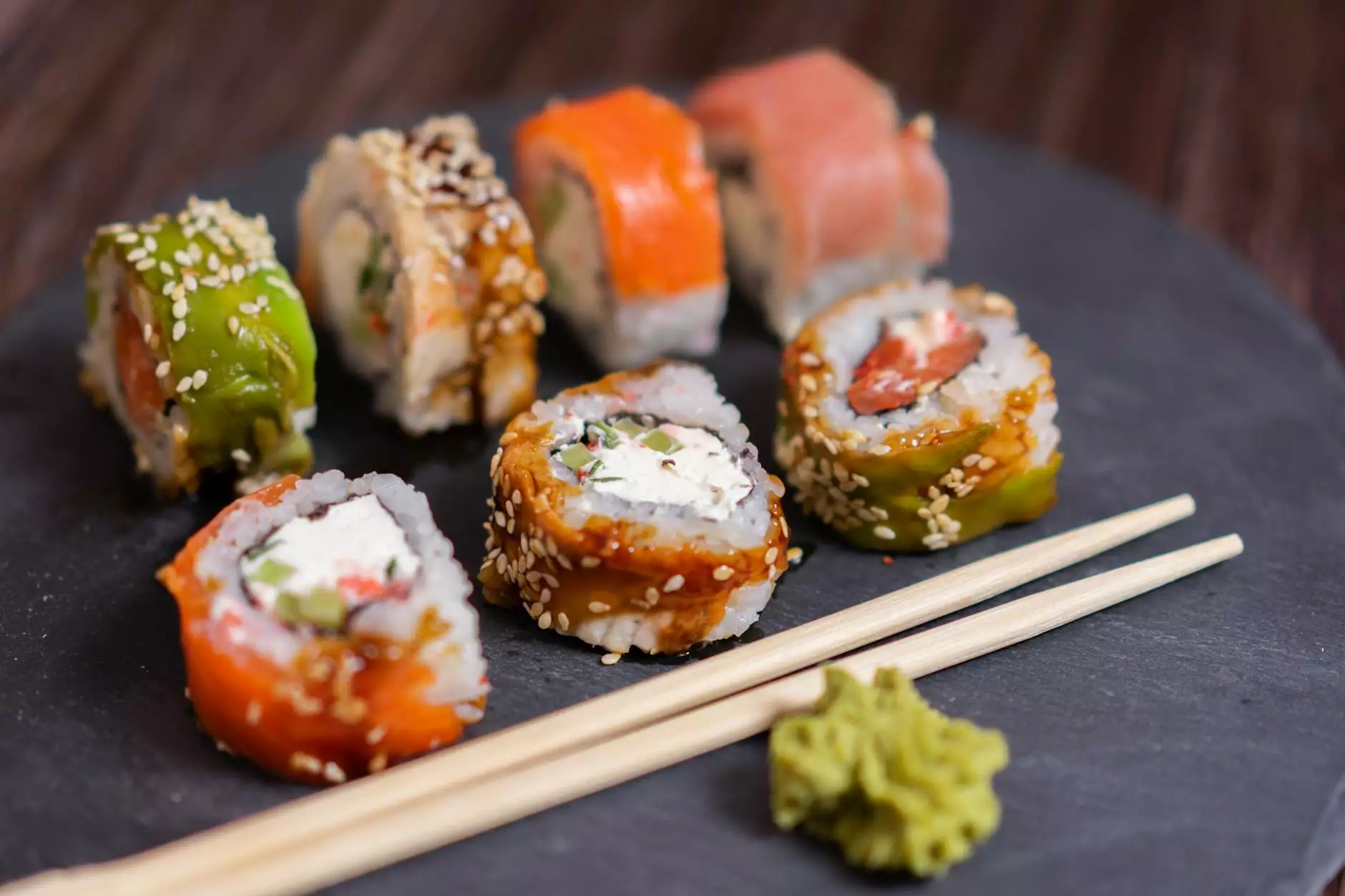Unlocking the Potential of Organic Wasabi: A Culinary and Health Marvel

In the world of gourmet cooking and health-conscious eating, organic wasabi has emerged as a vibrant, versatile ingredient that transcends traditional culinary boundaries. Unlike its common counterpart, the artificially flavored paste often found in sushi restaurants, organic wasabi boasts a unique profile, rich in flavor and nutrition. This article delves into the myriad benefits of organic wasabi, its culinary uses, and its growing popularity, especially among sushi bars and fine dining establishments.
What is Organic Wasabi?
Organic wasabi (Wasabia japonica), often referred to as "Japanese horseradish," is a perennial plant native to Japan. It thrives in cool, running water and is typically cultivated in shaded areas. While wasabi roots are the most well-known part of the plant, the leaves and stems are also edible and can be used in various dishes. The flavor profile of genuine organic wasabi is complex—tangy yet slightly sweet—with a refreshing heat that doesn’t linger as long as the heat from chili peppers.
The Health Benefits of Organic Wasabi
In addition to its culinary appeal, organic wasabi is celebrated for its outstanding health benefits. Here are some key points highlighting its nutritional power:
- Rich in Antioxidants: Organic wasabi contains potent antioxidants that fight free radicals in the body, contributing to overall health and wellness.
- Anti-Inflammatory Properties: The compounds found in wasabi can help reduce inflammation, which is linked to various chronic diseases.
- Supports Digestive Health: Wasabi stimulates digestion and can help in maintaining a healthy gut microbiome.
- Aids Respiratory Health: The natural compounds in wasabi have been found to promote respiratory health, particularly helpful for those with sinus issues.
- Natural Antimicrobial Effects: Wasabi exhibits antimicrobial properties, making it beneficial for preventing foodborne illnesses.
Organic Wasabi vs. Imitation Wasabi
Not all wasabi is created equal. Most people are familiar with imitation wasabi, which is often a mixture of horseradish, mustard, and green food coloring. This imitation is not only lacking in flavor and health benefits but also fails to provide the authentic wasabi experience. Here’s how organic wasabi stacks up:
FeatureOrganic WasabiImitation WasabiFlavorFresh, complex, vibrantHarsh, one-dimensionalNutritional ValueHigh in antioxidants, vitamins, and mineralsMinimal nutritional benefitsNatural100% natural, organic grownArtificial ingredientsCooking ApplicationsVersatile in dishes, sauces, and garnishesLimited to sushi and certain dishesCulinary Uses of Organic Wasabi
Organic wasabi is not just for sushi. Its unique flavor can elevate numerous dishes. Here are some creative culinary applications of wasabi:
1. Sushi and Sashimi
The most famous use of wasabi is undoubtedly in sushi and sashimi. Authentic organic wasabi complements the delicate flavors of raw fish, enhancing the overall taste without overpowering it.
2. Dressings and Marinades
Incorporating organic wasabi into salad dressings or marinades adds a spicy kick that can liven up any dish. Mix wasabi with soy sauce, olive oil, and garlic for a delightful dressing that pairs perfectly with grilled vegetables or seafood.
3. Sauces and Dipping Condiments
Create gourmet sauces by blending organic wasabi with cream, lime, and herbs. This can be a unique dipping sauce for appetizers or a zesty topping for grilled meats.
4. Soups and Broths
Adding organic wasabi to miso soup or other broths can provide an unexpected twist that enhances the overall flavor, making the meal more exciting.
5. Infusions
Infusing oils or vinegars with organic wasabi can create unique flavor profiles that can be used in various recipes, showcasing the wasabi in innovative ways.
Growing Your Own Organic Wasabi
For the culinary enthusiast, growing your own organic wasabi can be a rewarding endeavor. While it requires specific conditions—cool temperatures, shade, and a water source—it can provide a fresh supply of this exquisite ingredient. Here’s how to get started:
1. Choosing the Right Environment
Wasabi prefers a cool, shaded environment. Ideally, you should have a shady spot in your garden or use grow lights to create the necessary conditions.
2. Soil and Moisture Requirements
Wasabi thrives in well-drained, moist soil. Ensure your soil is rich in organic matter to support its growth. A pH level of around 6-7 is ideal.
3. Regular Care
Water regularly but avoid waterlogging. Wasabi plants require consistent moisture. Fertilization should be done with organic fertilizers to maintain its organic status.
4. Harvesting
Typically, wasabi is ready to harvest in 18 months. The roots can be harvested carefully, ensuring the plant can regenerate for future harvests.
Where to Buy Organic Wasabi
For those who may not have the ability to grow their own, finding high-quality organic wasabi is essential. Many reputable suppliers specialize in organic products, and numerous sushi bars and restaurants have started incorporating authentic wasabi into their menus. Look for sources that guarantee the authenticity and organic status of their wasabi. Here are some tips for purchasing:
- Order from dedicated online retailers that specialize in organic ingredients.
- Visit local farmer's markets or specialty food stores that focus on Japanese or organic products.
- Check with sushi bars to see if they offer authentic wasabi for sale.
Conclusion
In an age where cuisine meets health consciousness, organic wasabi stands out as a remarkable ingredient that adds flavor, uniqueness, and health benefits to a wide array of dishes. Whether enjoyed in sushi, mixed into a dressing, or even used in soups, organic wasabi proves it is much more than just a condiment. As the culinary world continues to evolve, embracing organic wasabi can be a delightful adventure for chefs and home cooks alike.
As you explore the world of organic wasabi, remember to seek out authentic sources that respect the cultivation process. By choosing organic, you not only enhance your culinary creations but also support sustainable farming practices that benefit the environment.
Start experimenting with organic wasabi today and elevate your dishes with this stunning ingredient!









